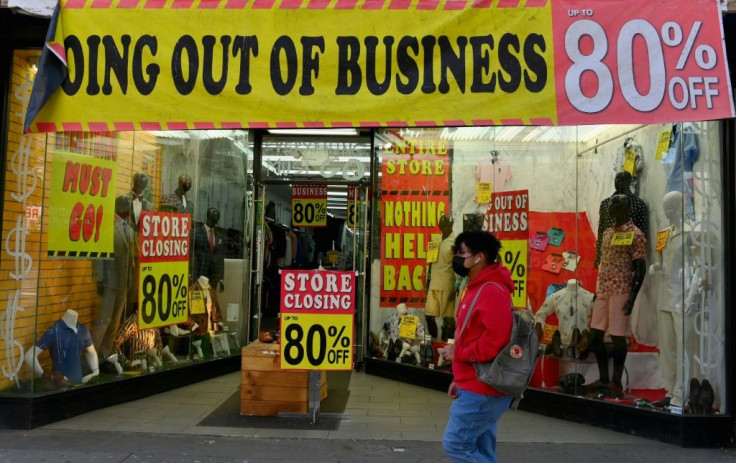Small Business Confidence About The Future Sags In November Over Uncertainty, Higher Costs

The small business community grew more negative in its future outlook in November as inflation and high labor costs ate into their margins, the National Federation of Independent Businesses (NFIB) reported on Tuesday.
In its survey of small business sentiment, the NFIB painted a troubled portrait characterized by uncertainty for the future as well as discontent with present conditions. On many of the NFIB’s metrics for measuring sentiment, the results were in the red.
The NFIB Optimism Index fell slightly in November by 0.2 to 98.4 from where it stood in October. Among its 10 components, four of them showed improvements, matched by four declines and two that remained unchanged.
Most of the concerns expressed by small businesses reflect those shown by larger enterprises. Nearly half (48%) reported problems hiring employees, with 10% calling labor costs their top business problem and 29% saying labor quality was their top business problem.
Supply chain problems brought on by the COVID-19 pandemic have also taken their toll on smaller businesses. A total of 31% said that shortages have been impactful while 35% reported experiencing supply problems that have pushed material costs higher.
Many blamed the rise in the cost of materials as the main reason for their lower profits with 32% saying so. This was followed by another 25% blaming weaker sales, 16% citing lower prices, 9% pointing to labor costs, 9% citing the usual seasonal change,, and 2% blaming higher taxes or regulatory costs.
These factors have weighed down small business expectations to a 48-year low. This uncertainty is expected to increase, owing to changes expected on the national level.
President Joe Biden’s multitrillion-dollar social spending plan is continuing to work its way through Congress, promising tax increases to help pay for it. But there is still uncertainty whether the bill will pass.
On the monetary policy side, the Federal Reserve has hinted that it will be accelerating its tapering of its stimulus programs to tame inflation. Speculation is mounting that the bank will raise interest rates in 2022 to cool credit conditions.
“As the end of the year nears, the outlook for business conditions is not encouraging to small business owners as lawmakers propose additional mandates and tax increases,” said NFIB Chief Economist Bill Dunkelberg. “Owners are also pessimistic as many continue managing challenges like rampant inflation and supply chain disruptions that are impacting their businesses right now.”
The NFIB survey acknowledged some bright spots.
Ten percent of respondents reported that they had plans to expand their inventories, up 2% from October. Two percent said that they expected their real sales to be higher, likely as a result of the holiday season, and 15% report satisfaction with their current inventories. And 1% of respondents said they expected to see better credit conditions in the future.
© Copyright IBTimes 2025. All rights reserved.





















